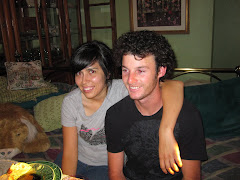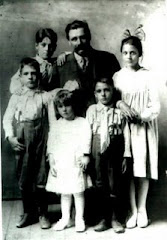Let us continue to examine the life of David, remember the Israelites were "in sore straits" because the Philistines had pillaged their land and even prevented them from defending themselves. (1 Sam 13:5,6,17-19). How did God view this? While, Jehovah did not authorize his chosen people to establish a world power, He did command them to destroy the immoral, demon-worshipping pagans out of the land that he had promised to give them.
In line with that promise, King Saul led God's people in protecting their God given land. His oldest son, Jonathan desired to have a part in eliminating the Philistine threat. Jonathan was a courageous, capable warrior. These qualities endeared him to Saul, and they enjoyed a close relationship. (1 Sam20.2) Regarding his father's role, Jonathan put faith in what God said,
"He (Saul) must save my people from the hand of the Philistines." (1 Sam 9:16). You may read of Jonathan's exploits on the battle field, where he showed his complete trust in God's backing, even striking down 20 Philistines, with just his armor bearer. (1 Sam 13:3-14:23) How, though did Jonathan have such confidence? On what did he base his faith? Well, he was familiar with the judges, Ehud, who led Israel against Moab, Shamgar, whom Jehovah enabled to strike down 600 Philistines with just a cattle goad, and Samson with power from Jehovah, could single-handedly fight against the Philistines. Based on this knowledge, Jonathan trusted that God would help him too! (Judges 3:12-31; 3:31; 15:14-16; 16:29, 30)
So, we find changes in Jesse's household. His three older sons are with Saul's armies defending their God given land. His youngest son, David is back home from the king's court, tending his father's sheep.
In the meantime, the Philistines have assembled their forces to fight against Israel. Picture in your mind the two armies on opposite sides of the low plain of Elah, in Judah. Every, morning and evening, for 40 days, the warrior Goliath emerged from the Philistine camp. He was a giant, a great warrior, a champion amoung the Philistines. Goliath would challenge Israel with the words, "Why do you come out to draw up in battle formation? Am I not the Philistine and you servants belonging to Saul? Choose a man for yourselves, and let him come down to me. If he is able to fight with me and he does strike me down, we must then become servants to you. But if I myself am a match for him and I do strike him down, you must also become servants to us, and you must serve us." And this Philistine went on to say, "I myself do taunt the battle lines of Israel this day. Give me a man, and let us fight together!" Saul and all Israel heard these words, they became afraid. (1 Sam17:1-11, 16) This continued for 40 days. Will the Israelites continue to be afraid of this giant bully? Let us see.
Jesse, concerned about his sons on the battle field, sends David with provisions to support the fight. (1Sam 17:17, 18). David traveled to the low plain of E'lah, the battle field in a stand off position. Just as David arrived at the camp enclosure, the military forces were going out to the front and they raised a battle cry! Can you imagine, what these men have been enduring? Dusty, possibly hungry, tired, frightened? What did this young shepherd do in this situation? He immediately left the provisions with the baggage keeper and went running, yes running to the battle line, looking with much concern, for his brothers. What did David then hear and see? It was that Giant Goliath, taunting the army of Jehovah! The men of Israel retreat due to the fear they felt. David hears the men say, "Have you seen this man that is coming up? For it is to taunt Israel that he is coming up. And it must occur that, the man who strikes him down, the king will enrich him with great riches, and his own daughter he will give him, and the house of his father he will set free in Israel." How does David react to this?
David is indignant because of this reproach against his God Jehovah and says, "Who is this uncircumcised Philistine that he has to taunt the battle lines of the living God?" (1 Sam 17:26)
David is then brought before the king and says, "Do not let the heart of any man collapse within him. Your servant himself will go and actually fight with this Philistine." But king Saul is not convinced, "You are not able to go against this Philistine to fight with him, for you are but a boy, and he is a man of war from his boyhood." But David explains to king Saul, "Your servant became a shepherd of his father among the flock, and there came a lion, and also a bear, and each carried off a sheep from the drove. And I went out after it and struck it down and made the rescue from it's mouth. When it began rising against me, I grabbed hold of its beard and struck it down and put it to death. Both the lion and the bear your servant struck down; and this uncircumcised Philistine must become like one of them, for he has taunted the battle lines of the living God." Then David continues, "Jehovah, who delivered me from the paw of the lion and the paw of the bear, he it is who will deliver me from the hand of this Philistine." (1Sam 17:37)
So it was, in taunting the armies of the living God Jehovah, Goliath sealed his own doom. Granted permission, the young shepherd, David, with Jehovah's spirit upon him, met Goliath's challenge. Goliath, preceded by his armor-bearer carrying a large shield, advanced, calling down evil upon David by his gods, with the words, "Am I a dog, so that you are coming to me with staves?...Just come to me, and I will give your flesh to the fowls of the heavens and to the beasts of the fields." Does David now flinch or back down in fear of this threat? David's answer sends tingles down my back and gives courage to any one facing giant problems, today. Listen to his words to this giant, "You are coming to me with a sword and with a spear and with a javelin, but I am coming to you with the name of Jehovah of armies, the God of the battle lines of Israel, whom you have taunted. This day Jehovah will surrender you into my hand, and I shall certainly strike you down...and people will know that there exists a God belonging to Israel. And all this congregation will know that neither with sword not with spear does Jehovah save, because to Jehovah belongs the battle, and he must give your men into our hand." Suddenly, David slung a stone from his sling; it sank into Goliath's forehead, and he fell to the earth. David followed this up by standing on Goliath and decapitates him with the giants own sword, (1 Sam 17:26, 41-53) David then returns to camp with the trophies of war, the giant's head and sword.
(1Sam 17:45-54) This was promptly followed by a signal rout and slaughter of the Philistines.
In line with that promise, King Saul led God's people in protecting their God given land. His oldest son, Jonathan desired to have a part in eliminating the Philistine threat. Jonathan was a courageous, capable warrior. These qualities endeared him to Saul, and they enjoyed a close relationship. (1 Sam20.2) Regarding his father's role, Jonathan put faith in what God said,
"He (Saul) must save my people from the hand of the Philistines." (1 Sam 9:16). You may read of Jonathan's exploits on the battle field, where he showed his complete trust in God's backing, even striking down 20 Philistines, with just his armor bearer. (1 Sam 13:3-14:23) How, though did Jonathan have such confidence? On what did he base his faith? Well, he was familiar with the judges, Ehud, who led Israel against Moab, Shamgar, whom Jehovah enabled to strike down 600 Philistines with just a cattle goad, and Samson with power from Jehovah, could single-handedly fight against the Philistines. Based on this knowledge, Jonathan trusted that God would help him too! (Judges 3:12-31; 3:31; 15:14-16; 16:29, 30)
So, we find changes in Jesse's household. His three older sons are with Saul's armies defending their God given land. His youngest son, David is back home from the king's court, tending his father's sheep.
In the meantime, the Philistines have assembled their forces to fight against Israel. Picture in your mind the two armies on opposite sides of the low plain of Elah, in Judah. Every, morning and evening, for 40 days, the warrior Goliath emerged from the Philistine camp. He was a giant, a great warrior, a champion amoung the Philistines. Goliath would challenge Israel with the words, "Why do you come out to draw up in battle formation? Am I not the Philistine and you servants belonging to Saul? Choose a man for yourselves, and let him come down to me. If he is able to fight with me and he does strike me down, we must then become servants to you. But if I myself am a match for him and I do strike him down, you must also become servants to us, and you must serve us." And this Philistine went on to say, "I myself do taunt the battle lines of Israel this day. Give me a man, and let us fight together!" Saul and all Israel heard these words, they became afraid. (1 Sam17:1-11, 16) This continued for 40 days. Will the Israelites continue to be afraid of this giant bully? Let us see.
Jesse, concerned about his sons on the battle field, sends David with provisions to support the fight. (1Sam 17:17, 18). David traveled to the low plain of E'lah, the battle field in a stand off position. Just as David arrived at the camp enclosure, the military forces were going out to the front and they raised a battle cry! Can you imagine, what these men have been enduring? Dusty, possibly hungry, tired, frightened? What did this young shepherd do in this situation? He immediately left the provisions with the baggage keeper and went running, yes running to the battle line, looking with much concern, for his brothers. What did David then hear and see? It was that Giant Goliath, taunting the army of Jehovah! The men of Israel retreat due to the fear they felt. David hears the men say, "Have you seen this man that is coming up? For it is to taunt Israel that he is coming up. And it must occur that, the man who strikes him down, the king will enrich him with great riches, and his own daughter he will give him, and the house of his father he will set free in Israel." How does David react to this?
David is indignant because of this reproach against his God Jehovah and says, "Who is this uncircumcised Philistine that he has to taunt the battle lines of the living God?" (1 Sam 17:26)
David is then brought before the king and says, "Do not let the heart of any man collapse within him. Your servant himself will go and actually fight with this Philistine." But king Saul is not convinced, "You are not able to go against this Philistine to fight with him, for you are but a boy, and he is a man of war from his boyhood." But David explains to king Saul, "Your servant became a shepherd of his father among the flock, and there came a lion, and also a bear, and each carried off a sheep from the drove. And I went out after it and struck it down and made the rescue from it's mouth. When it began rising against me, I grabbed hold of its beard and struck it down and put it to death. Both the lion and the bear your servant struck down; and this uncircumcised Philistine must become like one of them, for he has taunted the battle lines of the living God." Then David continues, "Jehovah, who delivered me from the paw of the lion and the paw of the bear, he it is who will deliver me from the hand of this Philistine." (1Sam 17:37)
So it was, in taunting the armies of the living God Jehovah, Goliath sealed his own doom. Granted permission, the young shepherd, David, with Jehovah's spirit upon him, met Goliath's challenge. Goliath, preceded by his armor-bearer carrying a large shield, advanced, calling down evil upon David by his gods, with the words, "Am I a dog, so that you are coming to me with staves?...Just come to me, and I will give your flesh to the fowls of the heavens and to the beasts of the fields." Does David now flinch or back down in fear of this threat? David's answer sends tingles down my back and gives courage to any one facing giant problems, today. Listen to his words to this giant, "You are coming to me with a sword and with a spear and with a javelin, but I am coming to you with the name of Jehovah of armies, the God of the battle lines of Israel, whom you have taunted. This day Jehovah will surrender you into my hand, and I shall certainly strike you down...and people will know that there exists a God belonging to Israel. And all this congregation will know that neither with sword not with spear does Jehovah save, because to Jehovah belongs the battle, and he must give your men into our hand." Suddenly, David slung a stone from his sling; it sank into Goliath's forehead, and he fell to the earth. David followed this up by standing on Goliath and decapitates him with the giants own sword, (1 Sam 17:26, 41-53) David then returns to camp with the trophies of war, the giant's head and sword.
(1Sam 17:45-54) This was promptly followed by a signal rout and slaughter of the Philistines.
What a fine example in faith based on realities! Yes, he had experienced God's saving power before and knew that God's hand is not short, but could save him from this uncircumcised Philistine, showing all on the battle field, Jehovah's saving power! David, is another of my heroes, someone I call brother. Wouldn't you like to meet him after the promised resurrection? I hope to have a long conversation with David of Bethlehem.
What happened to David when he returned to the camp?
"Abner proceeded to take him and bring him before Saul...And it came about that, as soon as he had finished speaking to Saul, Jonathan's very soul became bound up with the soul of David, and Jonathan began to love him as his own soul. Then Saul took him on that day, and he did not allow him to return to his father's house. And Jonathan and David proceeded to conclude a covenant, because of his loving him as his own soul. Further, Jonathan stripped himself of the sleeveless coat that was on him and gave it to David, and also, his garments, and even his sword and his bow and his belt. "
(1 Sam 17:57; 18:1-4).
This was the beginning of the special friendship Jonathan and David had. David's fearless act in defense of God's people moved Jonathan deep in his inward parts, remember Jonathan too had strong faith in Jehovah's saving power! The two based their friendship on their love for the Most High God. Jonathan could without a doubt see that David had God's spirit. He did not jealously view him as a rival, rather he had a deep respect for God's way of handling matters. This attitude was a good example for his younger friend. What do you learn about the Most High God from this true account? How will you apply what you learn in your own life?
What happened to David when he returned to the camp?
"Abner proceeded to take him and bring him before Saul...And it came about that, as soon as he had finished speaking to Saul, Jonathan's very soul became bound up with the soul of David, and Jonathan began to love him as his own soul. Then Saul took him on that day, and he did not allow him to return to his father's house. And Jonathan and David proceeded to conclude a covenant, because of his loving him as his own soul. Further, Jonathan stripped himself of the sleeveless coat that was on him and gave it to David, and also, his garments, and even his sword and his bow and his belt. "
(1 Sam 17:57; 18:1-4).
This was the beginning of the special friendship Jonathan and David had. David's fearless act in defense of God's people moved Jonathan deep in his inward parts, remember Jonathan too had strong faith in Jehovah's saving power! The two based their friendship on their love for the Most High God. Jonathan could without a doubt see that David had God's spirit. He did not jealously view him as a rival, rather he had a deep respect for God's way of handling matters. This attitude was a good example for his younger friend. What do you learn about the Most High God from this true account? How will you apply what you learn in your own life?






















































































2 comments:
I would like to meet David also. As I learn more about his life experiences, the more interested I am in trying to understand, how his life teaches me and impacts my own life. Thank you so much for your insight, and your study of the scriptures.
It was good to read about David again. Thank you. David's devotion to and faith in God the Father is a grand example for all of us. Jonathan also is one to be admired for his love for our Father in Heaven and David.
Post a Comment